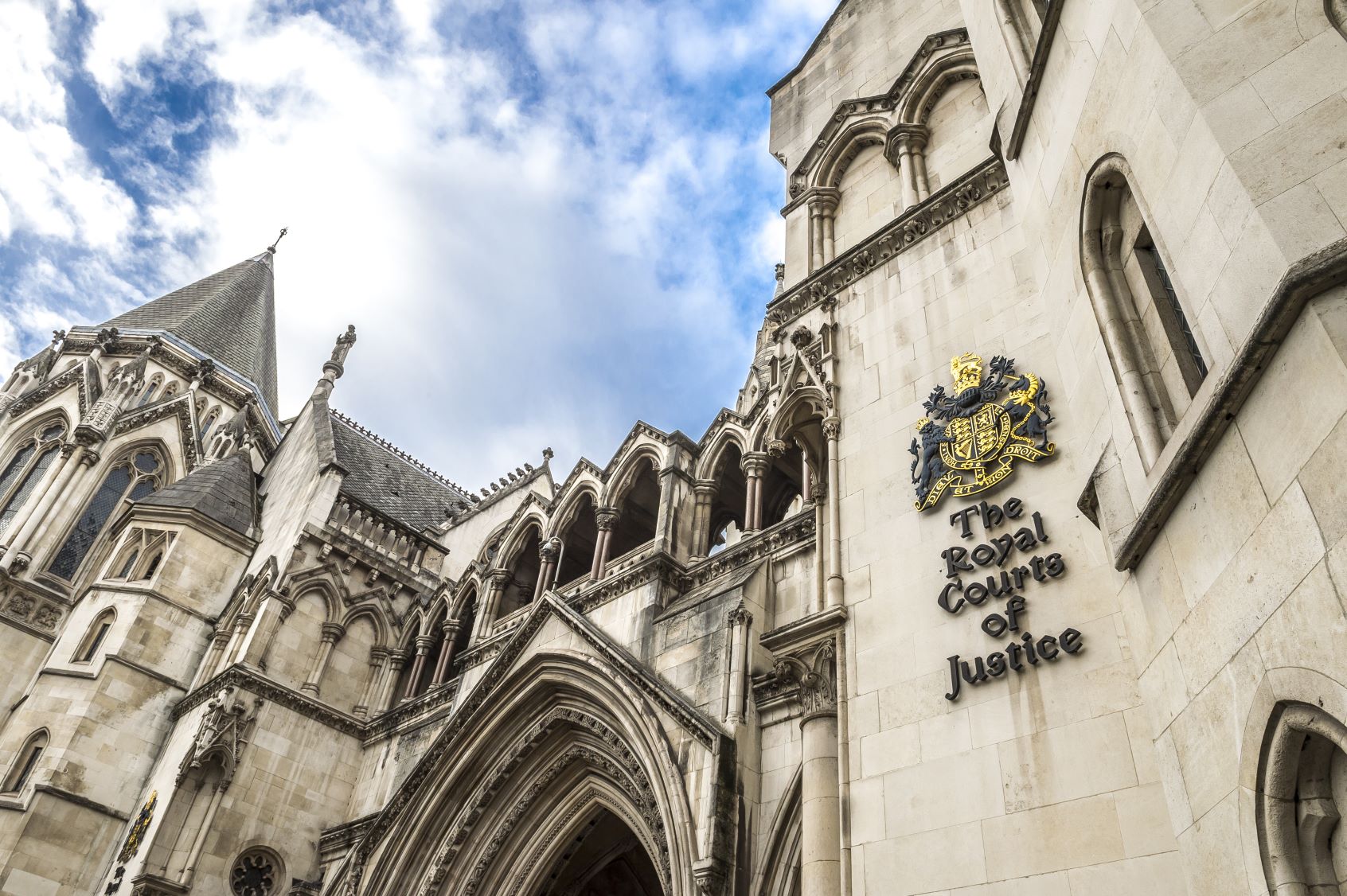Judges in the UK decide when human rights should prevail over government policy, and they can change the law as well as interpret it, writes Derrick Wyatt. Should they be accountable through appointment by elected politicians, or is it enough that they are appointed on merit, and decide cases in a transparent way?
Senior judges in the UK’s three jurisdictions – England and Wales, Northern Ireland, and Scotland – are appointed without the active involvement of elected politicians. Vacancies are advertised, and independent committees – which include judges – recommend the best qualified candidates to ministers. There is some room for ministerial veto, but very little. The same model applies to promotions to appellate courts and a similar model to appointments to the UK Supreme Court. A former Conservative Home Secretary has described the judges of the Supreme Court as “a self-perpetuating oligarchy.”
Too ready to move the legal goalposts?
Critics argue that some judges indulge their own liberal agenda when they rule on the legality of government action. In the wake of a ruling of the Court of Appeal that went against the government’s policy of removing asylum seekers to Rwanda, a former adviser to Boris Johnson suggested that the politicisation of judicial appointments might be necessary because “that is the only way democracies can get the upper hand if judges keep undermining elected politicians.”
Critics argue that some judges indulge their own liberal agenda when they rule on the legality of government action.
UK judges are also criticised for being too ready to change the law in ways which restrict the government’s freedom of action. In 2019, then prime minister Boris Johnson advised the Queen to approve an abnormally long suspension of Parliament which seemed designed to limit oversight by MPs of his government’s plans for Brexit. The UK Supreme Court held that the prime minister’s advice was unlawful and therefore the prorogation was unlawful and could be disregarded by Parliament. It is fair to characterise the Court’s ruling as both a conclusion as to what the law was and a policy choice as to what the law should be. That is how “common law”, or judge-made law, works. It is not set in stone, it evolves. Such evolution, however, according to one Supreme Court judge, “avoids radical legislative change” because that “requires a democratic mandate, which judges do not have”.
A good deal of the law in the UK’s three jurisdictions is still judge-made. Most notably, in the present context, much of the law defining the limits of governmental authority has been the product of judicial innovation over the last 60 years.
Parliament still rules the roost
Rulings by UK courts on the state of UK law can be overruled by an Act of Parliament, and the courts must give effect to an Act of Parliament even if it conflicts with the European Convention on Human Rights (ECHR). The most they can do in such a case is to hand down a declaration of incompatibility, which records their judgment on the matter but does not deprive incompatible provisions of the Act of their legal effect.
Some of the criticisms levelled at UK judges for their rulings in human rights cases may reflect the critics’ frustration at the requirements of human rights law itself as much as the attitudes of UK judges. The ECHR requires judges to balance individual rights against the public interest, with the latter prevailing only if judges accept that that is essential. This involves an element of policy choice as well as legal analysis and can lead to cries of “foul” from those who think their elected government is getting the balance right and their unelected courts are not.
On top of that, even if UK courts reject a human rights case against the government, a complainant can still take the matter directly to the European Court of Human Rights in Strasbourg, whose judgments are binding in international law on the UK. The government says it has no plans to withdraw from the ECHR, and to do so would breach the Good Friday Agreement and the UK/EU Trade and Cooperation Agreement.
While UK judges must defer to acts of Parliament, there may be exceptions to this. It has been suggested by some judges that a statutory provision that prevented UK courts from reviewing the legality of governmental action would not be binding on the judiciary. In light of this, one recent proposal for reform of judicial selection argues that the government should be able to veto the appointment of judges who might “undercut settled constitutional standards, including parliamentary sovereignty”.
Those who see UK judges as having the wrong attitude or being too ready to change the law offer as a possible solution the greater involvement of government ministers or MPs in the appointment of judges.
The risks of politicising judicial selection
Political involvement in judicial selection could be relatively light-touch, perhaps along the lines of that practised in Australia or Canada, and political input might be on a cross-party basis. That approach might produce outcomes little different from the status quo, though any government-dominated selection would invite suspicions of party favouritism. More assertive political choice would have negative consequences. Lawyers hoping to be appointed to judicial office might feel they had to make their attitudes to issues like human rights and judicial innovation clear to potential political sponsors, even if those issues seldom arose in their field of practice. Judges who had secured appointment might be suspected of deciding cases in ways likely to favour their advancement to appeal courts or the Supreme Court. And whether advancement came or not, they might find themselves judging cases in which their political sponsors were involved, and find it hard to defend their impartiality in such cases. The judicial process might become, or appear to become, the pursuit of party politics by other means.
Giving politicians more say in the selection of judges would not necessarily make for a more deferential judiciary. That would depend on the politicians doing the selecting. Increasing the democratic legitimacy of the judiciary through political appointments could also backfire – it might embolden some judges to be more innovative, not less.
Is appointment on merit and transparency enough to legitimise the law-making role of the judiciary? Since UK judges do protect human rights, and can change the law, and might even entertain aspirations to override Parliament in admittedly extreme situations, can they be said to be sufficiently accountable in the absence of the legitimising link of political appointment?
Legal reasoning and policy choice can be hard to disentangle, even for judges
Senior judges are appointed on the basis of their expertise, which should be a neutral factor as regards their attitude to human rights and legal innovation. The main instrument for their accountability is transparency – the judicial process is a public process, and all judicial decisions must be reasoned and published.
Judicial reasoning, however, is never completely transparent. Judges may for example weigh competing legal arguments along the following lines: “if the law is x then it would lead to undesirable consequences in certain situations, which would not be the case if the law is y, which leads us to think that the law is y and not x”. This is a legitimate way of testing legal propositions, but it is also a way of making policy choices. Such ambiguity makes it hard to distinguish between the application of existing law and the making of new law, even for judges themselves.
It could not really be otherwise, and it is perhaps this inherent mixity and ambiguity of the judicial task which distinguishes judicial law-making from any other law-making and legitimises the evolution of judge-made law. Up to a point, anyway. At the end of the day, judges do sometimes make the policy choice to innovate. When they do, one measure of the legitimacy of that choice may be the public reaction to it.
At the end of the day, judges do sometimes make the policy choice to innovate.
It is interesting to note that the Supreme Court’s ruling on Boris Johnson’s advice to suspend Parliament, referred to above, was supported by a plurality of the public, with Britons agreeing with the Supreme Court’s decision by a margin of 49 per cent to 30 per cent according to YouGov, 49 per cent to 35 per cent according to Opinium, and 50 per cent to 29 per cent according to ComRes.
More broadly, an Ipsos poll last year showed that 59 per cent of the public had confidence in the Supreme Court doing its job, despite most not knowing much about its work. As regards the appointment of Supreme Court judges, the poll showed 37 per cent either endorsing the status quo, or saying that judges should be elected by all lawyers and judges. Only 26 per cent endorsed political appointment of one sort or another.
The legitimacy of the judicial role requires diversity at the top
That said, the democratic legitimacy of the senior judiciary needs to be demonstrated rather than assumed. Appointment on merit and transparency strengthen claims to legitimacy, whereas partisan selection would not. If there is a missing element it is sufficient diversity at Supreme Court level as regards gender and ethnicity. Diversity in these and other respects could be improved by merging the Supreme Court with UK appeal courts and thereby creating a more broadly based final court of appeal.
All articles posted on this blog give the views of the author(s), and not the position of LSE British Politics and Policy, nor of the London School of Economics and Political Science.
credit: Photo by Ekaterina Bolovtsova via Pexels.







